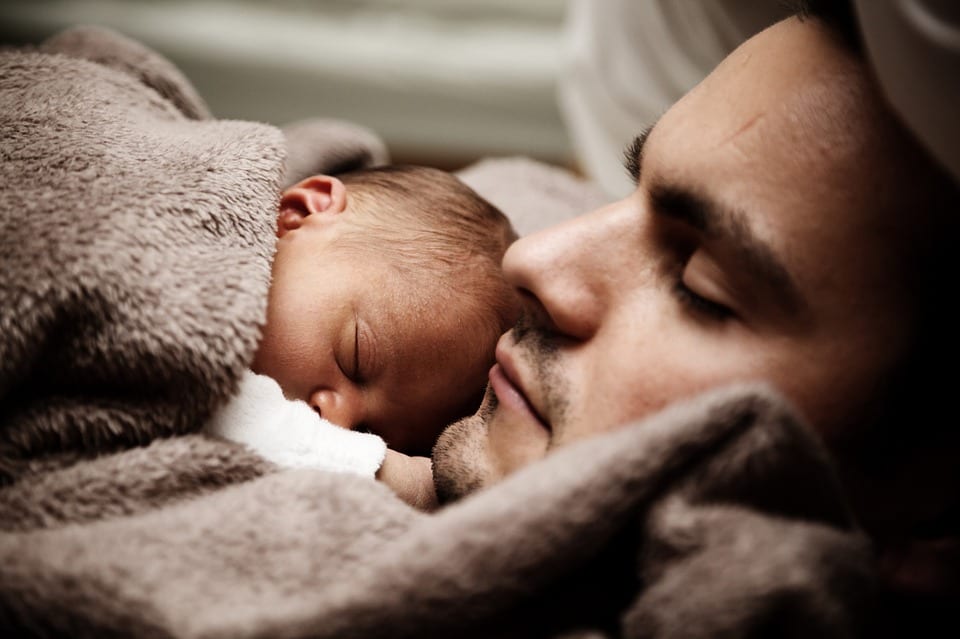Bhutan is smoking-free, carbon-negative country that passes no law unless it improves citizens’ well-being.
The post Bhutan is smoking-free, carbon-negative… appeared first on Crazy Facts.
fact
Bhutan is smoking-free, carbon-negative country that passes no law unless it improves citizens’ well-being.
The post Bhutan is smoking-free, carbon-negative… appeared first on Crazy Facts.
Anxiety is a funny thing. And by “funny,” I mean “a serious mindf***.”
How else would you explain the fact that your anxiety can actually get WORSE when something good happens to you. Seriously, there’s just no winning with this, is there?
Clinical psychologist Carla Marie Manly explained to HuffPost why this often happens to people with anxiety:
“Anxiety can be a bit tricky, as it’s a primitive response that’s hard-wired into the brain. The brain’s fear circuit works very quickly, and it doesn’t always pause to differentiate between good anxiety and bad.”
Photo Credit: iStock
When something good happens, it triggers very similar physical symptoms to those that you associate with panic or fear, Carla said. Excitement and anxiety are very similar, as far as your body is concerned.
Also, the mere sensation of happiness can cause fear if you’re not really used to feeling that way. It’s new and unfamiliar — an anxious person’s worst enemy. Furthermore, many people worry that something good happening MUST mean that something bad is going to happen next.
Photo Credit: iStock
It sucks to feel overcome by anxiety when you feel like you should be jumping for joy. But the first key to moving past the feeling is acknowledging and accepting it, Carla explained. Then practice enjoying any little piece of good news that comes your way — and be patient with yourself.
“It’s natural for the psyche to want to go back to old thought patterns, so this new one will take time and patience to become hard-wired into the brain.”
Time and patience – that’s some solid advice.
The post There’s a Psychological Reason Why Your Anxiety Gets Worse When Good Things Happen appeared first on UberFacts.
Everyone knows that part of being a parent is not getting nearly enough sleep. When you bring a baby into your home you can kiss your regular 8 hours of beauty rest a night goodbye.
While some may think they’ll catch up on sleep eventually like once the baby starts sleeping all night, the science is in and…that’s just not true.
In fact, the science says it will take six whole years before parents get a decent night’s sleep after having a baby.

Image Credit: Pixabay
It seems hard to believe – sure, night feedings end fairly quickly (in retrospect), but kids are sick and they have nightmares and they wake up for no apparent reason and need a drink or to come sleep in your bed. Parenting is 24/7, and we know that, but researchers were still caught a bit off guard.
Study co-author Sakari Lemola, a psychology professor at the University of Warwick, commented in The Guardian:
“We didn’t expect to find that, but we believe that there are certainly many changes in the responsibilities you have.”
Previous research estimated that parents lose about 44 days of sleep during their child’s first year of life, with mothers being hit harder than fathers. That said, more and more fathers are accepting larger parenting roles and, as they often go back to work sooner, have fewer opportunities to nap during the day.

Image Credit: Pixabay
This study tracked the sleep of 2541 moms and 2118 dads over the course of six years. They parents reported births of children, as well as how well they slept on weeknights versus weekends. Women experienced the most lost sleep during baby’s first year, reporting a 1.7 point decline in sleep quality after their first children and another 1 point decline after the birth of each subsequent child. On average, moms lost about 40 minutes of sleep per night in that first year, and in the first three months they lost over an hour. Comparatively, dads lost only 13 minutes of sleep per night during their first year of parenthood.

Image Credit: Pixabay
Regardless of the differences, it took up to 6 years for both men and women to return to their normal sleep schedule after having a child. The results were also similar regardless of income, whether or not both parents worked, and single parenting.
There is a reason that sleep-deprivation is used as a torture device, and more than a few health reasons parents should be concerned – and take care to minimize the effects of a poor night’s sleep on their life and body.
Insufficient sleep is associated with car accidents, poor concentration and performance at work, increased illness, weight gain, and a higher risk of diabetes and cardiovascular disease.

Image Credit: Pixabay
Unfortunately, there’s not a whole lot you can do about it when you’ve got small children; if your little one needs you in the middle of the night you can’t really tell them to go piss up a rope and roll over.
But researchers did make a few suggestions.
“For parents, lifestyle management strategies might include stress management, exercise, enlisting help from family and friends and seeking the guidance of professionals such as therapists or physicians when needed.”
“Families benefit from prioritizing healthy sleep – this can be accomplished through limited caffeine intake, having a consistent and calming evening routine, keeping the bedroom dark, and reducing exposure to bright screens such as cell phones, tablets, and TVs close to bedtime.”
And take heart, mamas and daddies – six years will go by in a flash.
The post Sorry, Parents: Your Sleep-Deprivation is Here to Stay At Least Until Your Youngest Hits Kindergarten appeared first on UberFacts.